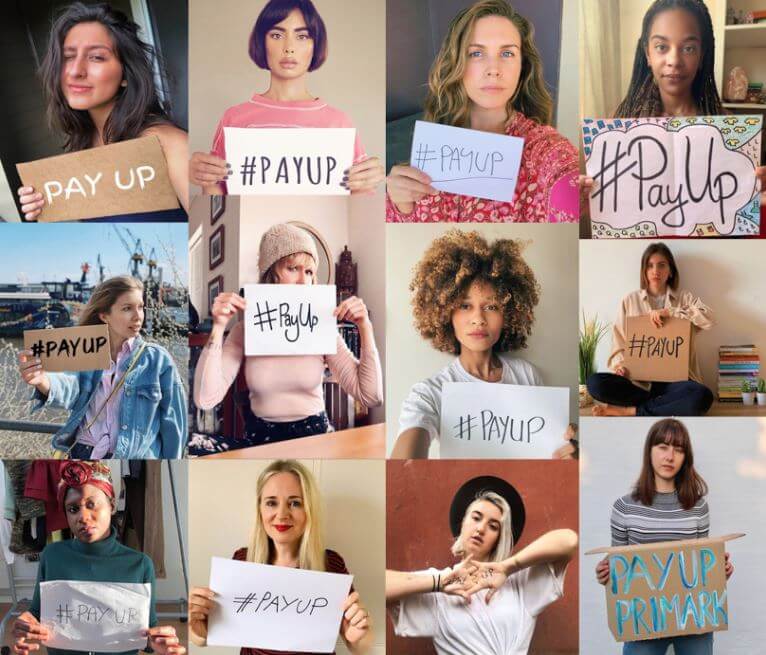Garment workers, unions, and NGOs are still fighting major retailers to pay for the clothes they have been supplied since the start of the Covid-19 pandemic. Using the hashtag #PayUp, influencers and other allies in Western countries are now striving to shame retailers into doing the right thing.
At the very start of the Covid-19 pandemic, global clothing brands invoked force majeure clauses in their supply contracts en masse, effectively cutting their obligations to suppliers and their workers. Payment was suspended even on orders that were already in the process of being manufactured.
This left an estimated USD $5.8 billion owed to the 40-60 million garment workers worldwide in just the first three months of the pandemic. They are predominantly in South and Southeast Asia – Bangladesh, China, India, Indonesia, the Philippines – but also Turkey, Romania, Italy and Portugal.
With payments paused, millions of workers were summarily dismissed and sent home without severance pay, while those still employed saw their conditions deteriorate further. Bangladesh actually made it legal to pay workers just 75% of their salary when the pandemic, and the situation was undoubtedly even worse for those illegally employed.
With reduced worker bargaining power, average monthly wages across the garment industry have reduced since Covid-19, down 21% from $187 to $147. In April, just 3% of garment workers said they could afford adequate food. This increased to just 54% by September.
The #PayUp Campaign
Using the #PayUp hashtag, major brands have since been cajoled into paying back billions of dollars. One estimate is that retailers have paid back $22 billion in stalled contract payments over the past 12 months.

Yet by November, when half of the major brands had gone on to record profits due to Covid-19 fiscal stimulus, there was still an estimated $16 billion in unpaid supply payments. Over half of all retailers had sought and received discounts from the suppliers.
This includes Australia’s Kmart and Target, according to the Business and Human Rights Resource Centre. While the two retailers, controlled by Wesfarmers (ASX: WES), have agreed to pay their Bangladeshi suppliers in full, they will not confirm the same for their suppliers elsewhere, and appear to be seeking discounts in exchange for payment of completed and in-progress orders.
Clearly, international labour rights are still a major frontier for social justice.
Feature image courtesy of Business and Human Rights Resource Centre.
Follow Christian on Twitter for more news updates.